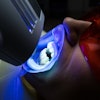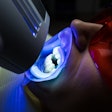A survey that examined barriers to support and services to North Carolina mothers of children with orofacial clefts found that 40% have had difficulty accessing primary craniofacial care.
For the study, published in Cleft Palate -- Craniofacial Journal (May 2012, Vol. 49:3, pp. 262-269), researchers from the University of North Carolina and the University of Pittsburgh conducted a qualitative analysis of this population, based on a statewide birth defects registry.
The study included 248 survey respondents who were mothers of children 0 to 6 years of age with orofacial clefts. Geographical factors, lack of referrals, experiences with stigmatization, and concerns about confidentiality are some of the barriers that these mothers perceived, according to the researchers.
The survey results revealed financial, structural, and personal barriers to care. Lack of health insurance or low Medicaid reimbursement rates can create financial obstacles to care, while the structure of the healthcare system or psychosocial problems can be defined as structural and personal barriers, the study authors noted.
To address these issues and help parents achieve a positive view of their experiences, the authors recommend well-coordinated care and communication between service providers and families. Training and continuing education for healthcare professionals could help them understand parents' views and specific needs.
Health insurance companies, health departments, craniofacial and cleft teams and centers, and birth defect registries can collaborate with families and existing healthcare systems to offer identification and referral of these children to the services that can best meet their needs, the researchers concluded.



















